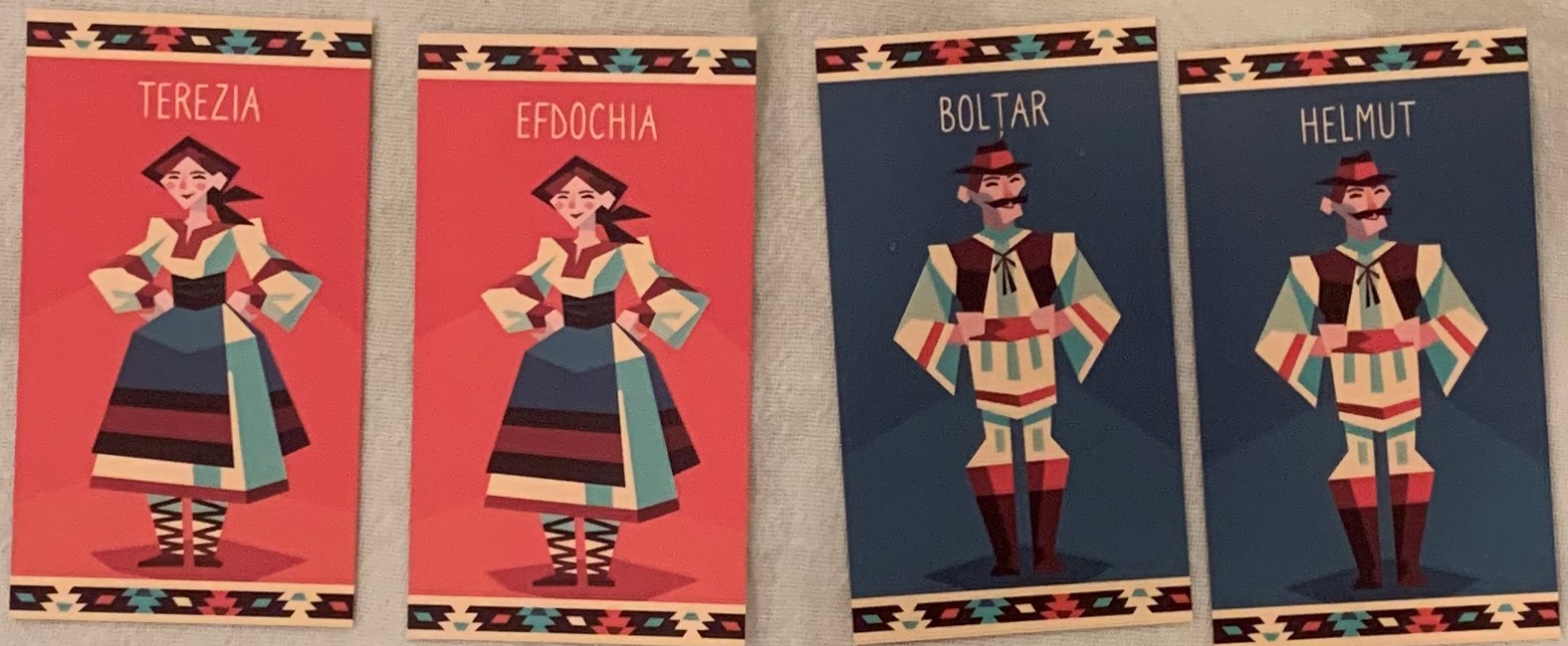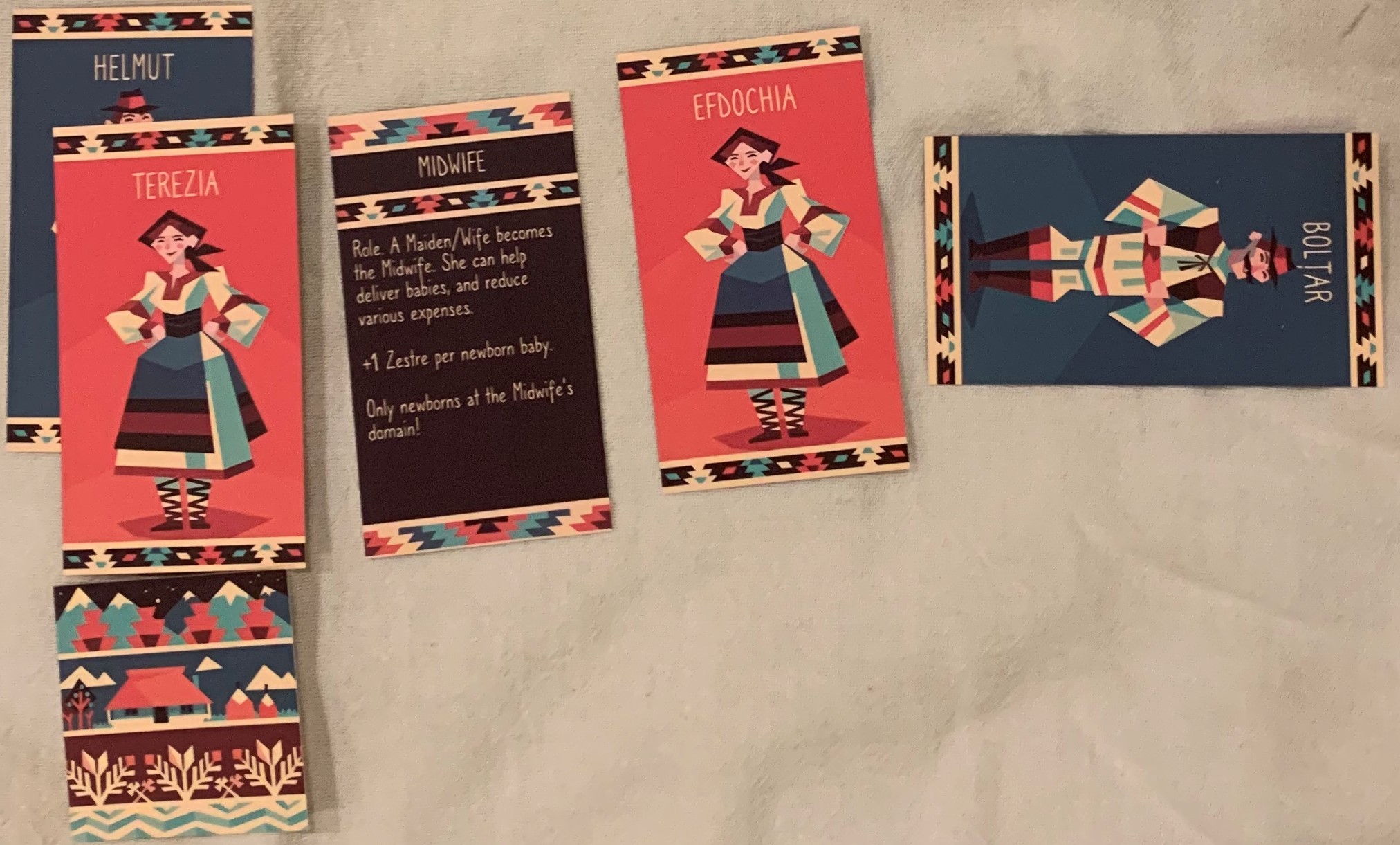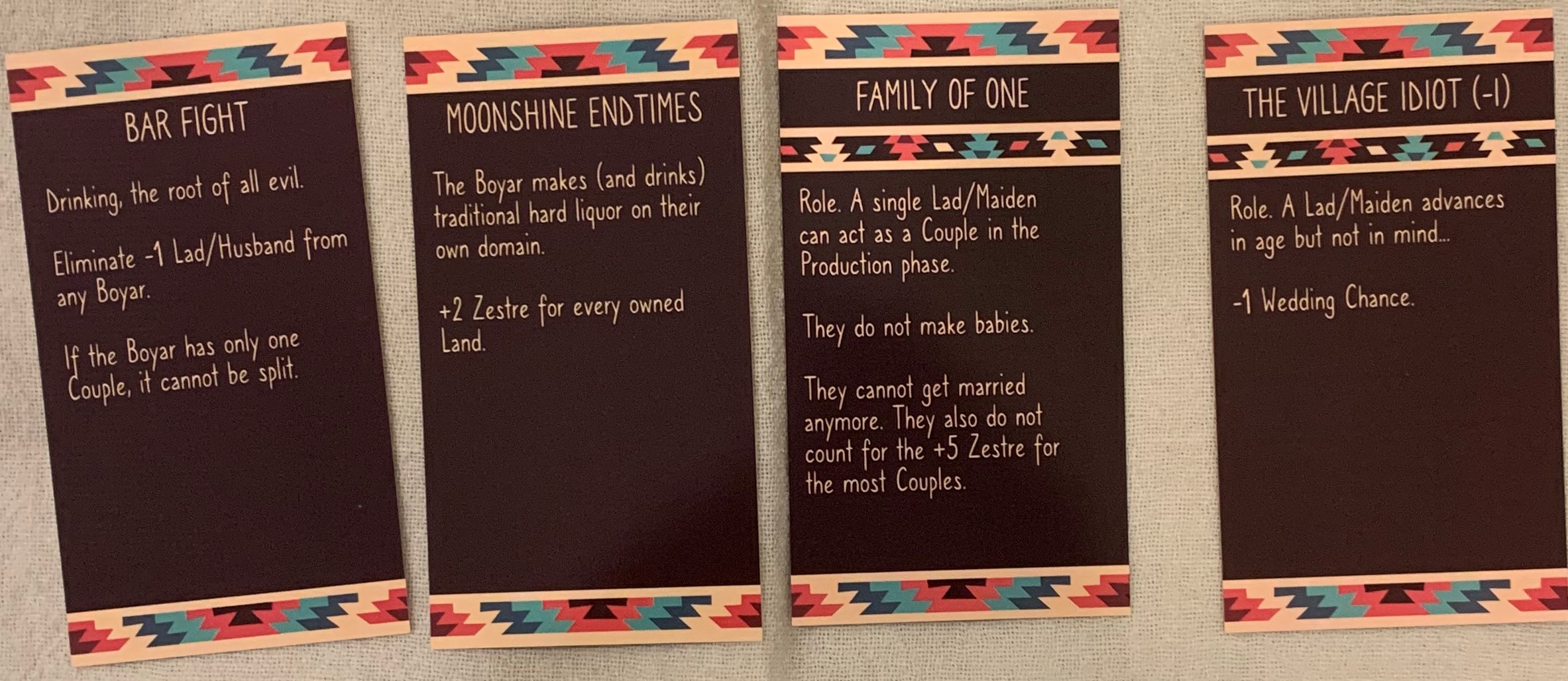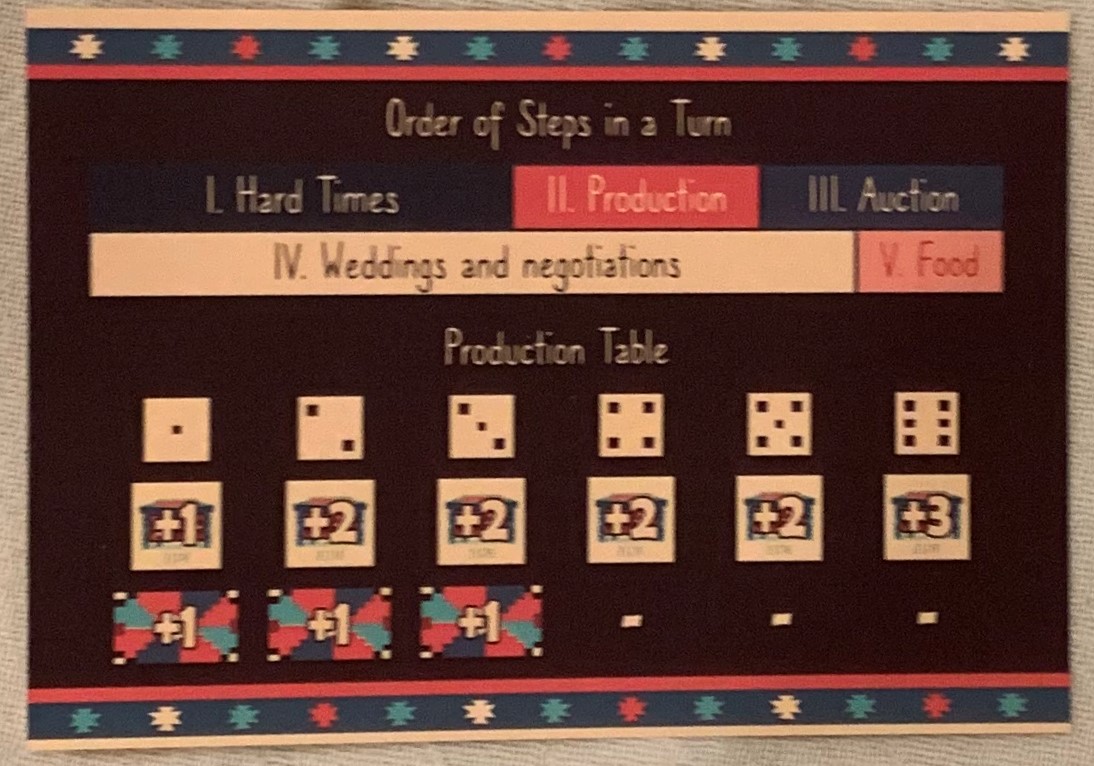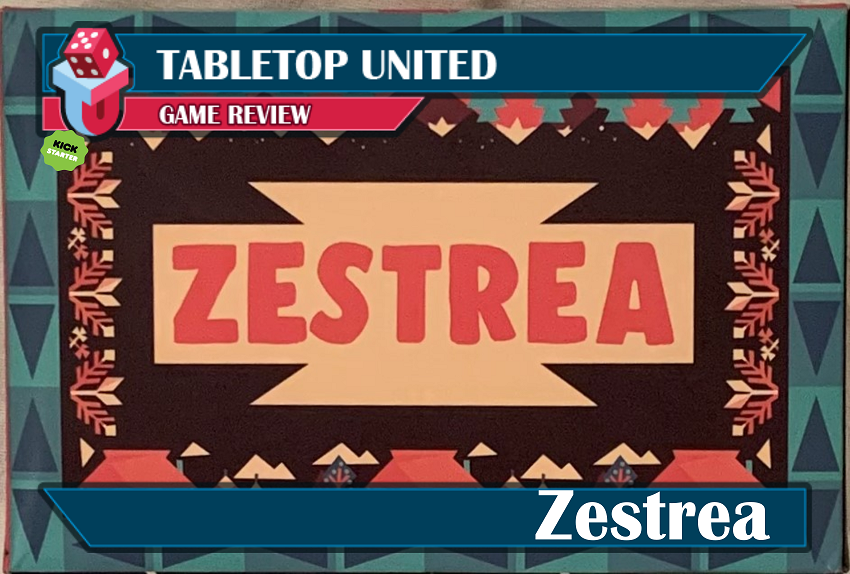
Zestrea
Designer: Horatiu Roman, Alex Patiu
Artist: Maria Surducan
Publisher: Valiant Game Studio
Year Published: 2019
No. of Players: 1–6
Ages: 12+
Playing Time: 45–90 Minutes
Main mechanic / Theme: Negotiations
Using open negotiations between players, Zestrea makes a fun social game.
Find more info on BoardGameGeek.com (link)
Overview:
The village must survive. As their boyar (the area’s nobility) you have the responsibility of working to help the villagers. You must do your duty so the village can thrive, and nobody starves to death. What you really need is to increase the village’s zestrea, dowry of the maidens. To accomplish this, you and the other boyar and boyaress must work together to help each other’s villages.
Zestrea is a game of across the table negotiations. Over eight rounds, everyone works to grow their village’s wealth, land, and population. The only way you can do this is by cooperating, negotiating, and making deals with the other players. You can’t make it on your own because the lads and maidens must marry outside their home villages.
As everyone is working to accomplish the growth and stability of their village, you also have to deal with the trials and tribulations of living through the hard times. Only married couples produce zestre: wealth and land. But all the villagers eat. Even when fate seems to be going against you, keep planning and working with the other boyar to plan for the future.
Winning takes skill and luck to get the highest score from having the most zestre, land, and couples.
Gameplay and mechanics:
The open negotiations fit well with Zestrea. There is no structure to the negotiations, so some players can get overwhelmed by others who are willing to jump in with both feet.
There are 8 rounds of play, which are governed by the created deck of Good Times and Hard Times. Each of the rounds has 5 steps.
The steps are played by everyone at the same time. There are no structured player turns that are done by a player then move to the next player. Once you get into this, it quickly becomes a game of constant talking as everyone is looking for the next deal they need to make.
- Hard Times
This turn consists of turning over the top card of the deck playing out what is on it.
- Production
Boyars roll 1 die for each married couple to see what the couple was able to produce,
- Auction
Reveal the next Fate card and it goes up for auction to everyone.
- Weddings and negotiations
Negotiations between players happen. This can entail a number of different things. Part of the negotiations includes attempting marriages between unwed lads and maidens. This round continues until all boyars (players) agree they are done.
- Food
This is making sure your couples and single adults have enough food to survive. Each 1 consumes food from 1 piece of land or is paid for by 1 zestre. If you don’t have enough zestre you have to sell land to feed them. If you don’t have extra land to sell, they die.
When this step is done you start the next round.
During all of this you can also play the Fate Cards you hold. They can make changes to how well the weddings go, give specific people (a lad or maiden) roles that stay with them for the rest of the game, and move people around the board.
Theme:
Playing a noble taking care of a village by arranging marriages to allow for production was a first for all of playing. This wasn’t an idea any of us had any level of experience with. But the open negotiations were a unique and fun experience.
Final thoughts:
Most of the players had a good time playing Zestrea. One person expressed frustration because they didn’t care for the format of open negotiations with individual turns. They prefer a game with a structured turn they could deal with, then see what the other players do on their turns. They liked the theme and other elements of the game—growing a village and dealing with the situations that arose the rest of the elements.
Play got a little louder when 2 people were trying to make separate deals with third player. The pace even picks up when a player is trying to make a quick deal so someone else can’t jump into the negotiation.
Even though everyone is competing against each other for the best score, people also work together. The competitive cooperation required was interesting and provided a good evening of entertainment.
About the Author:
Daniel Yocom does geeky things at night because his day job won't let him. This dates back to the 1960s through games, books, movies, and stranger things better shared in small groups. He's written hundreds of articles about these topics for his own blog, other websites, and magazines after extensive research along with short stories. His research includes attending conventions, sharing on panels and presentations, and road-tripping with his wife. Join him at guildmastergaming.blogspot.com.
